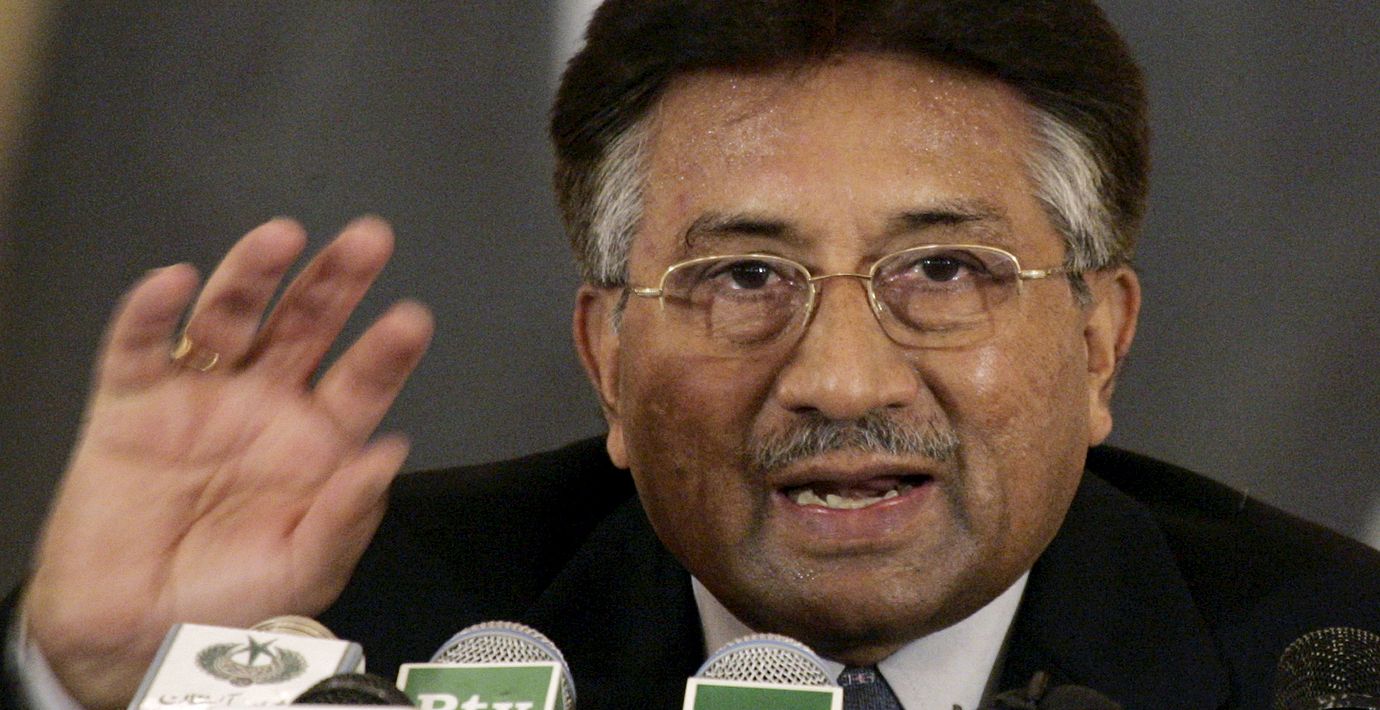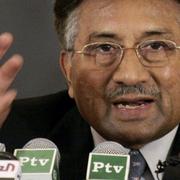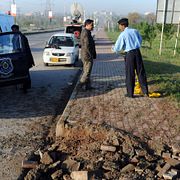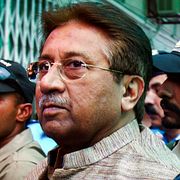
Pakistans ex-president får dödsstraff efter statskupp
Pakistans tidigare ledare Pervez Musharraf döms till döden, rapporterar al-Jazira. Han döms för högförräderi efter att på ett olagligt sätt infört ett undantagstillstånd 2007 i syfte att flytta dåvarande domaren i högsta domstolen.
Pervez Musharraf har befunnits skyldig till artikel 6 för brott mot Pakistans konstitution, meddelar en representant för regeringen.
Han har tidigare friats från misstankarna för att ha planerat mordet på landets förra premiärminister Benazir Bhutto 2007.
Tidigare
bakgrund
Pervez Musharraf
Wikipedia (en)
Pervez Musharraf (Urdu: پرویز مشرف Parvez Muśarraf; born 11 August 1943) is a Pakistani politician and retired four-star general of the Pakistan Army, who was the 10th President of Pakistan from 2001 until tendering his resignation, to avoid impeachment, in 2008.Born in Delhi during the British Raj, Musharraf was raised in Karachi and Istanbul. He went on to study mathematics at the Forman Christian College in Lahore and would later study at the Royal College of Defence Studies in 1991. Musharraf entered the Pakistan Military Academy in 1961 and was commissioned in the Pakistan Army in 1964 and went on to play an active role in the Afghan civil war. Musharraf saw action in the Indo-Pakistani War of 1965 as a second lieutenant; by the 1980s, Musharraf was commanding an artillery brigade. In the 1990s, he was promoted to major general and assigned an infantry division, and later commanded the Special Services Group. Later he served as deputy military secretary and the director general of military operation.Musharraf rose to national prominence when he was elevated to a four-star general, appointed by then-Prime Minister Sharif in October 1998, making Musharraf the head of the armed forces. He led the Kargil infiltration that almost brought India and Pakistan to a full-fledged war in 1999. After months of contentious relations with Prime Minister Sharif, Sharif unsuccessfully attempted to remove Musharraf from the army's leadership. In retaliation, the army staged a coup d'état in 1999 which allowed Musharraf to take-over Pakistan and subsequently placed Prime Minister Sharif under a strict house-arrest before moving towards a trial against Sharif in Adiala Prison.Musharraf became the head of the military government while remaining the Chairman of the Joint Chiefs in 2001 and the Chief of the Army Staff. Although, Musharraf relinquished the position of Chairman of Joint Chiefs in 2001, he remained the Army Chief until retiring from the army in 2007. He became the President of Pakistan on 20 June 2001, only to win a controversial referendum on 1 May 2002 which awarded him five years of presidency. In October the same year, he oversaw a general election in which the army-backed PML-Q was successful.
During his presidency, he advocated for a third way for varying synthesis of conservatism and left-wing ideas, he appointed Shaukat Aziz in place of Sharif and directed policies against terrorism, becoming a key player in the American-led war on terror. Over the next several years, Musharraf survived a number of assassination attempts. He reinstated the constitution in 2002, though it was heavily amended with the Legal Framework Order. He also saw a process of social liberalism under his enlightened moderation program, while also promoting economic liberalisation and banning trade unions. He oversaw a rise of in overall gross domestic product at around 50%, however domestic savings declined and saw a rapid rise in economic inequality. Musharraf's government has also been accused of human rights abuses.As Shaukat Aziz departed as Prime Minister, and after approving the suspension of the judicature branch in 2007, Musharraf's position was dramatically weakened in early 2008. Tendering his resignation in a threat to face potential impeachment movement led by the ruling Pakistan People's Party in 2008, Musharraf moved to London in self-imposed exile after returning to Pakistan to participate in the general elections held in 2013. While absent from Pakistan, Musharraf engaged in legal battles after the country's high courts issued warrants for him and Aziz for their alleged involvement in the assassinations of Benazir and Bugti. Upon his return, Musharraf was disqualified from taking part in the elections by High Court judges in April 2013. On 31 March 2014, Musharraf was booked and charged with high treason for implementing emergency rule and suspending the constitution in 2007. On 31 August 2017, he was declared an "absconder" by Pakistan’s anti-terrorism court in verdict of Benazir Bhutto murder case. His legacy is mixed; his era saw the emergence of a more assertive middle class, but his disregard for civilian institutions weakened the state of Pakistan.
Omni är politiskt obundna och oberoende. Vi strävar efter att ge fler perspektiv på nyheterna. Har du frågor eller synpunkter kring vår rapportering? Kontakta redaktionen


